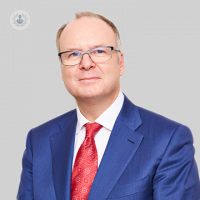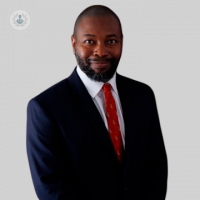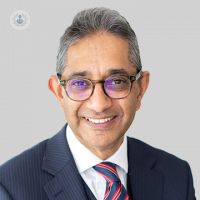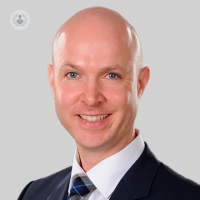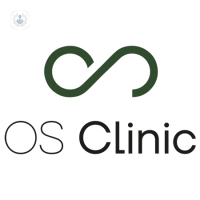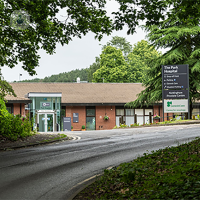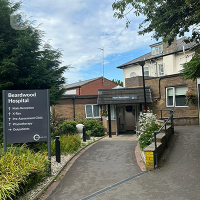What is facial reconstruction?
Microsurgical facial reconstruction encompasses various surgical techniques that are used to treat both diseases or injury that have led to loss of some of the structure or function of the face.
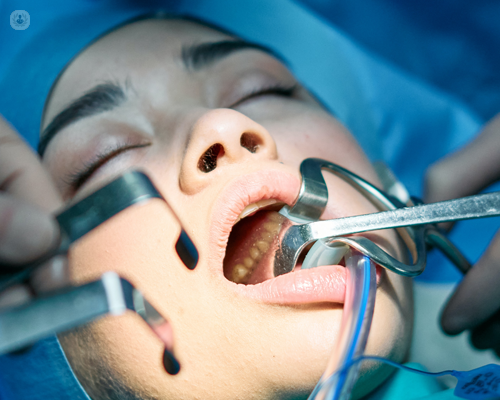
Why is facial reconstruction surgery done?
Several conditions are treatable, notably different types of facial paralysis and atrophy that prevent the correct movement of the muscles and structures of the jaw and/or the eyes, and facial expression, for example:
- Perry-Romberg syndrome;
- Moebius syndrome, or;
- Binder syndrome.
What does facial reconstruction microsurgery involve?
Facial microsurgery aims to replace the affected areas and to restore normal appearance and function, via use of individual techniques for transplantation of tissue, nerve and muscle grafts. Currently, facial reconstruction can be performed successfully via the use of advanced microscopic techniques for transplanting tissue from the same patient. Given the anatomy of this area, the surgery is highly complex and in some cases, it may have to be performed in several stages - separate surgical interventions - to achieve the best outcome.
What's involved in post-operative care for facial reconstruction microsurgery?
Depending on the severity of the process and the particular reconstructive technique used, you may undergo facial reconstructive surgery as an outpatient, with the sutures removed after one week at your GP’s office, or as an inpatient with a hospital stay of over 10 days.
What are the risks of facial reconstruction microsurgery?
Like any other surgical procedure, there are risks inherent to:
- anaesthesia,
- the surgical technique being used,
- type of condition being treated, and
- risks related to your medical history.
Complications of facial reconstruction surgery are directly related to what level of surgery was involved, it's duration, and your health status and age, as well as the surgeon’s experience. Furthermore, bleeding, infection and total or partial flap loss may occur. It's important to be aware that these complications can be solved.
Which specialist undertakes facial reconstruction surgery?
Plastic and reconstructive surgeons, as well as oral and maxillofacial surgeons all undertake facial reconstruction surgery.
11-13-2012 05-31-2023Facial reconstruction
Miss Katherine George - Oral & maxillofacial surgery
Created on: 11-13-2012
Updated on: 05-31-2023
Edited by: Karolyn Judge
What is facial reconstruction?
Microsurgical facial reconstruction encompasses various surgical techniques that are used to treat both diseases or injury that have led to loss of some of the structure or function of the face.

Why is facial reconstruction surgery done?
Several conditions are treatable, notably different types of facial paralysis and atrophy that prevent the correct movement of the muscles and structures of the jaw and/or the eyes, and facial expression, for example:
- Perry-Romberg syndrome;
- Moebius syndrome, or;
- Binder syndrome.
What does facial reconstruction microsurgery involve?
Facial microsurgery aims to replace the affected areas and to restore normal appearance and function, via use of individual techniques for transplantation of tissue, nerve and muscle grafts. Currently, facial reconstruction can be performed successfully via the use of advanced microscopic techniques for transplanting tissue from the same patient. Given the anatomy of this area, the surgery is highly complex and in some cases, it may have to be performed in several stages - separate surgical interventions - to achieve the best outcome.
What's involved in post-operative care for facial reconstruction microsurgery?
Depending on the severity of the process and the particular reconstructive technique used, you may undergo facial reconstructive surgery as an outpatient, with the sutures removed after one week at your GP’s office, or as an inpatient with a hospital stay of over 10 days.
What are the risks of facial reconstruction microsurgery?
Like any other surgical procedure, there are risks inherent to:
- anaesthesia,
- the surgical technique being used,
- type of condition being treated, and
- risks related to your medical history.
Complications of facial reconstruction surgery are directly related to what level of surgery was involved, it's duration, and your health status and age, as well as the surgeon’s experience. Furthermore, bleeding, infection and total or partial flap loss may occur. It's important to be aware that these complications can be solved.
Which specialist undertakes facial reconstruction surgery?
Plastic and reconstructive surgeons, as well as oral and maxillofacial surgeons all undertake facial reconstruction surgery.


Facial reconstruction surgery: Restoring confidence and functionality
By Mr Geoff Chiu
2024-11-18
Facial reconstruction surgery is a remarkable field of medicine that combines aesthetics with functionality, aiming to restore both physical appearance and essential facial functions. For individuals considering this transformative journey, it's essential to understand the intricacies of the procedure and its potential benefits. In his latest article, renowned consultant oral and maxillofacial surgeon Mr Geoff Chiu offers his expert insight into this procedure. See more
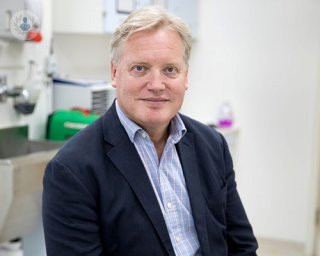

Craniofacial plastic surgeon Mr Niall Kirkpatrick – being a Top Doctor
By Mr Niall Kirkpatrick
2024-11-18
Mr Niall Kirkpatrick is an award-winning craniofacial plastic surgeon based in London specialising in reconstructive craniofacial, head and neck surgery. He is highly recognised for both his clinical work, and his charitable work in Vietnam. We interviewed Mr Niall Kirkpatrick about why he decided to become a doctor and to specialise in his chosen field of plastic surgery. See more


Considering chin surgery? Expert guidance on genioplasty procedures
By Professor Andrew Sidebottom
2024-11-16
Renowned consultant oral and maxillofacial surgeon Professor Andrew Sidebottom expertly explains how various surgical procedures are performed to enhance the appearance of the chin in this informative guide. See more

Facial reconstruction surgery following trauma
By Professor Kavin Andi
2024-11-11
Facial trauma can result from numerous causes, such as road traffic accidents or sports, and the results can often cause bone, nerve and muscle damage. Mr Kavin Andi, a top maxillofacial surgeon, explains the process of facial reconstruction surgery following trauma. See more
Experts in Facial reconstruction
-
Mr Simon Eccles
Plastic surgeryExpert in:
- Facelift
- Facial reconstruction
- Children's plastic surgery
- Rhinoplasty (nose job)
- Blepharoplasty
- Body contouring
-
Miss Katherine George
Oral & maxillofacial surgeryExpert in:
- Facial reconstruction
- Facelift
- Salivary gland surgery
- Sialendoscopy
- Wisdom teeth
- Orthognathic surgery
-
Professor Kavin Andi
Oral & maxillofacial surgeryExpert in:
- Mouth cancer
- Head and neck cancer
- Skin cancer
- Oral surgery
- Salivary gland surgery
- Facial reconstruction
-
Mr Bhavin G Visavadia
Oral & maxillofacial surgeryExpert in:
- Facial plastic surgery
- Dental implants
- Facial reconstruction
- Head and neck cancer
- Oral surgery
- Salivary gland surgery
-
Professor Owen Judd
Otolaryngology / ENTExpert in:
- Otology
- Dizziness
- Voice disorders
- Migraine
- Facial reconstruction
- Facial plastic surgery
- See all

OS Clinic
OS Clinic
OS Clinic, 45 Queen Anne St, London W1G 9JF
No existe teléfono en el centro.
By using the telephone number provided by TOP DOCTORS, you automatically agree to let us use your phone number for statistical and commercial purposes. For further information, read our Privacy Policy
Top Doctors

The Park Hospital - part of Circle Health Group
The Park Hospital - part of Circle Health Group
Sherwood Lodge Drive, Burntstump Country Park, Arnold, Nottinghamshire NG5 8RX
No existe teléfono en el centro.
By using the telephone number provided by TOP DOCTORS, you automatically agree to let us use your phone number for statistical and commercial purposes. For further information, read our Privacy Policy
Top Doctors

The Beardwood Hospital - part of Circle Health Group
The Beardwood Hospital - part of Circle Health Group
Preston New Rd, Blackburn BB2 7AE
No existe teléfono en el centro.
By using the telephone number provided by TOP DOCTORS, you automatically agree to let us use your phone number for statistical and commercial purposes. For further information, read our Privacy Policy
Top Doctors
-
OS Clinic
OS Clinic, 45 Queen Anne St, London W1G 9JF, W1G Marylebone LondonExpert in:
- Hip
- Minimal access surgery (keyhole surgery)
- Joint preservation surgery
- Maxillofacial Surgery
- Orthopaedic surgery
- Orthopaedic spinal surgery
-
The Park Hospital - part of Circle Health Group
Sherwood Lodge Drive, Burntstump Country Park, Arnold, Nottinghamshire NG5 8RX, ArnoldExpert in:
- General Surgery
- Maxillofacial Surgery
- Oral surgery
- Plastic surgery, reconstructive and aesthetics
- Obstetrics and Gynaecology
- Podiatry
-
The Beardwood Hospital - part of Circle Health Group
Preston New Rd, Blackburn BB2 7AE , BlackburnExpert in:
- Cancer
- Cardiology
- General Surgery
- Orthopaedic surgery
- Dermatology
- Diagnostic Imaging
- See all
- Most viewed diseases, medical tests, and treatments
- Migraine
- Minimal access surgery (keyhole surgery)
- Head and neck cancer
- Neck lump
- Acellular dermal matrix (ADM)
- Prepectoral breast reconstruction
- One Stop Breast Clinic
- Botulinum toxin (Botox™)
- FUE hair transplant
- Carpal tunnel syndrome

